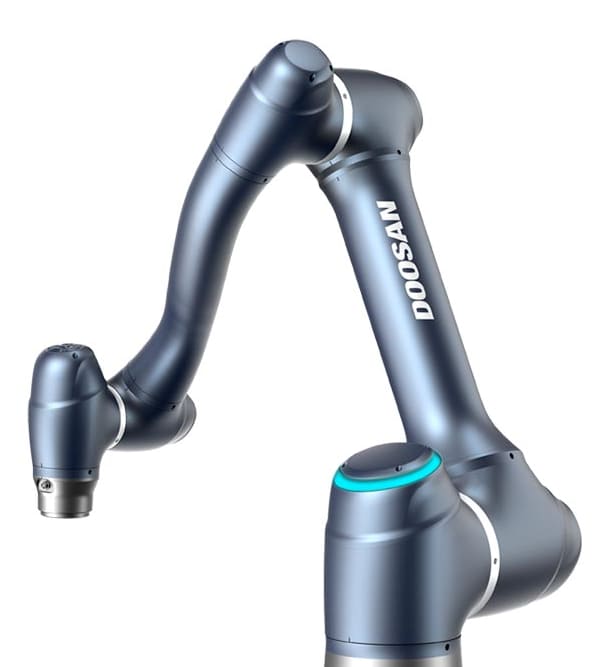Cobots (Collaborative Robots)
About Industrial Collaborative Robots
Collaborative robots, also called cobots, are a form of robotic automation. Cobots are designed to work safely alongside human workers in a shared, collaborative workplace.
In most applications, a manufacturing cobot performs the repetitive, menial, or high-precision tasks while the human employee completes the more variable and cognitive work. The accuracy, uptime and repeatability of collaborative robots complement the intelligence and problem-solving skills of a human worker.
Industrial cobots differ greatly from their industrial robot counterparts. Cobots are designed for safety, which is why they feature rounded edges, force and speed limitations and lighter weights than industrial robots. Further, most cobots contain sensors that function to prevent or limit the impact of collisions with human workers. Safety protocols are in place to shut down the cobot in the event of accidental contact.
With the ability to work collaboratively with humans in real-time, cobots expand the potential applications of robotic automation. Cobots can be placed in continuous flow, making them ideal for customers who employ Lean practices in their process. They are also easy to move and re-deploy relative to Industrial robots so they can be adapted quickly if your needs change.
The market for collaborative robots is expected to grow exponentially as more industries realize the profits to be gained from this technology. Having an experienced partner who can assist you in designing your deployment and ensuring the cobot remains safe in your application is crucial to your success. Rhino Tool House is your premier cobot partner.
Benefits of Cobots
- Collaboration with people in real-time is possible.
- Can be placed directly in process flow instead of creating sub-assemblies.
- Can directly share workload with people to enhance line balancing.
- Fast to deploy and re-deploy.
- User-friendly programming and operation.

